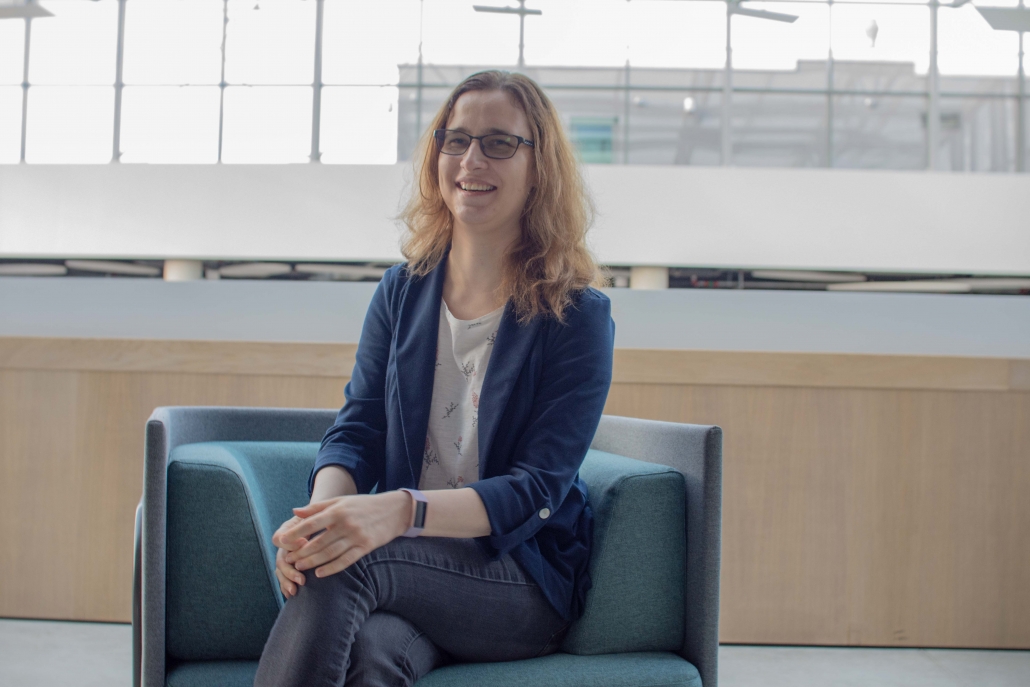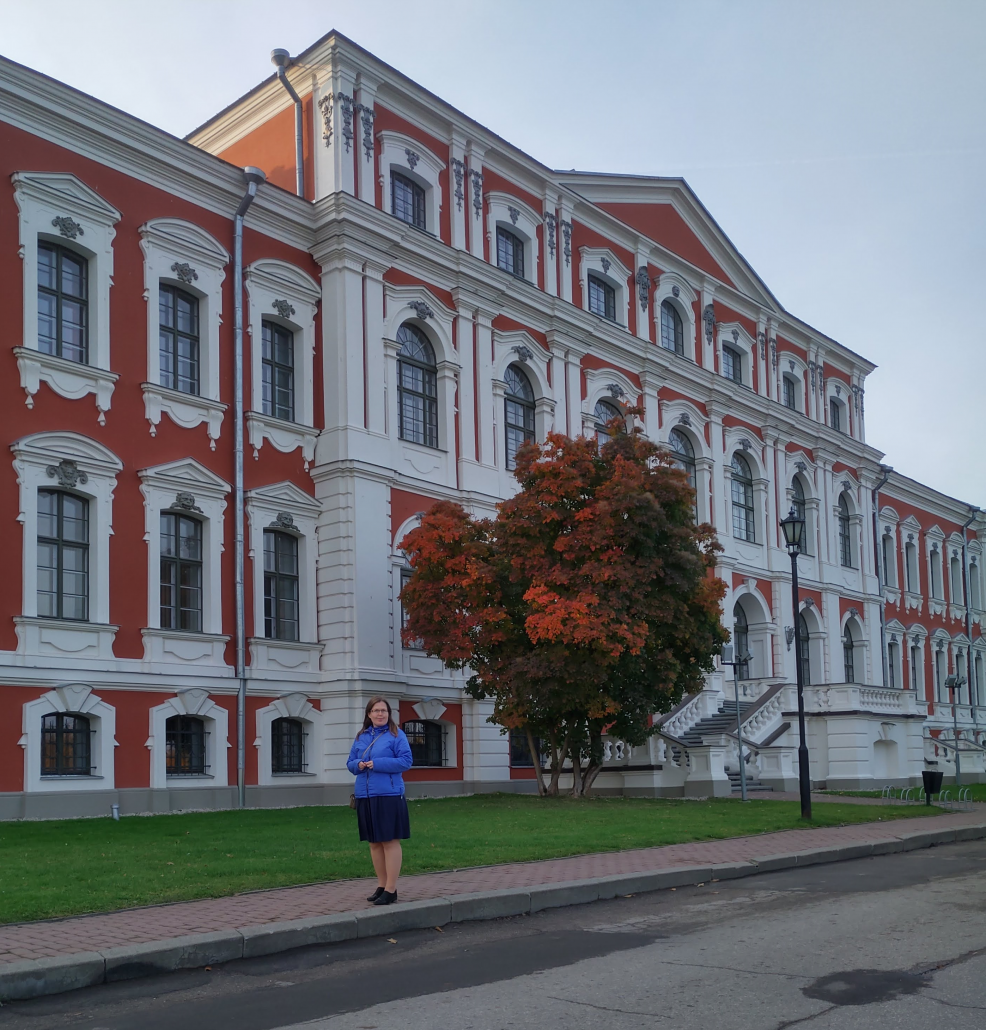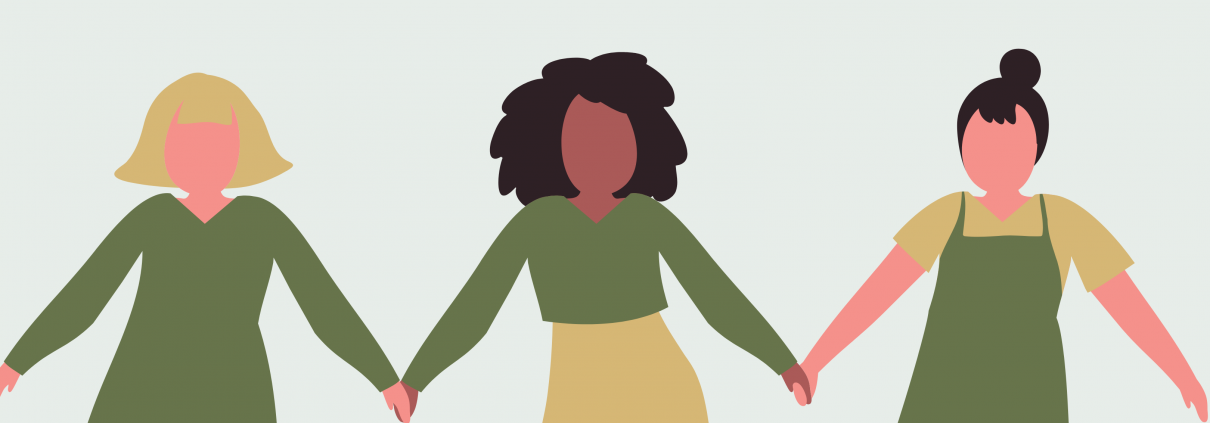Interviews with our researchers
Greetings from the Institute of Numerical Modelling in the International Women’s Day!
We would especially like to greet our employees – Baiba Jirgensone, Maija Sjomkāne, Liene Bandeniece, Inese Suija, Tija Sīle and Daiga Cepīte-Frišfelde.
To celebrate this day we have interviewed our two female researchers – Tija Sīle and Daiga Cepīte-Frišfelde.

Tija Sīle started working for the Institute of Numerical Modelling in 2008, she finished her PhD studies in 2018 and now she works for a PostDoc project Mathematical modelling of the weather – the development of methodology and applications in Latvia.
Did you find physics and science in general exciting early on or later in life? How did it all start?
My father was a chemist, to him it was important to teach me the basics of mathematics and chemistry even before I had started school. In my childhood I was not put to by adults reading me fairy tales, but with tales of the composition of an atom. He sparked my interest in the natural world.
What is your current research on?
Many people don’t know this, but the weather forecasts are made by special computer programmes that use the laws of physics to predict the weather. I work with these programmes, I try improving the algorithms they use, as well as, researching the meteorological phenomena.
What has surprised you about your field of research? What are others surprised by?
Mani pārsteidza, cik patiesībā maz mēs zinām par mūsu klimatu un laika apstākļiem – tie taču ir tik svarīgi mūsu dzīvēs. Citi cilvēki parasti ir pārsteigti, cik daudz pacietības darbs prasa – vienu kļūdu programmas kodā varu meklēt nedēļu.
How has your work changed the way you look at the world?
Physics offers a calm and organised outlooked on the world. There are laws of nature that cannot be violated, but this does not mean that they cannot be turned to our advantage by using some of our brainpower. I look at the world in a similar manner – some things cannot be changed, but maybe within the set frames, some good things are possible. Physics also teaches that our intuition cannot always be trusted.
What is the best piece of advice that you have ever received?
Mostly I have gained knowledge by watching others. From my colleagues, I have learned that we should not give up on finding a solution, sometimes people just don’t think that things can be done differently.
What would advise to young researchers?
To find something in life that makes you feel good and once you can get out of bed, start doing it.

Daiga Cepīte-Frišfelde works in the Institute of Numerical Modelling since 2006, currently she works on Ce2Coast.
Did you find physics and science in general exciting early on or later in life? How did it all start?
I think that I mostly chose physics because of the two wonderful physics teachers that I had – Mirdza Vilipsone (Ogre 1st high school) un Tamāra Brice (Riga State gymnasium). My dad and my mum’s dad worked in academia – in mathematics and in agriculture, also my mum worked in a field related to education. All in all, I am not very far away from an environment I knew when growing up.
What is your current research on?
Currently, I am working on a project that is related to the Gulf of Riga. In the past decades according to our project partners – marine biologists, we have learned that the water in the Gulf of Rigas has become less transparent. We would like to find a way to make the water more transparent, but it is challenging. Our resources allow us to analyse several parameters and causes, as well as, predict the influence of these parameters on the water in the future.
What has surprised you about your field of research? What are others surprised by?
Lately I have understood the importance of a connection with the nature. Luckily in Latvia the nature is still very easily available. I try to add more and more of nature in my daily life.
How has your work changed the way you look at the world?
In our institute there are many people that think about the life deeply. I have learned a lot from them.
What is the best piece of advice that you have ever received?
It seems that already during my studies it was reminded that no knowledge is more important than our relationship with other people. More than ten years later and with a smile I can say that recently I reminded it one of my colleagues too.
What would advise to young researchers?
I have a suspicion that nowadays very few people follow their heart, which is why I would like to remind everybody – follow your heart.


